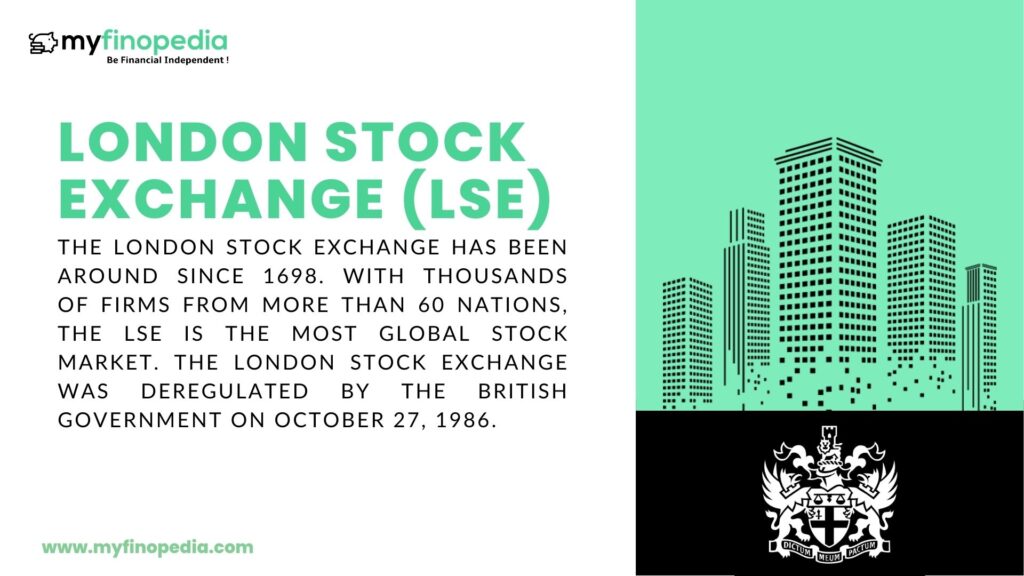The world’s one of the oldest stock exchanges, the LSE was founded in 1571. The leading index, or “Footsie,” includes 100 of the LSE’s top blue-chip firms. As of April 2018, the market capitalization of the LSE was expected to be US$4.59 trillion.
The London Stock Exchange has been around since 1698. With thousands of firms from more than 60 nations, the LSE is the most global stock market. The LSE offers affordable access to some of the deepest and most liquid pools of money through its primary markets.
The London Stock Exchange was deregulated by the British government on October 27, 1986. The London Stock Exchange started using electronic trading after deregulation. The government’s reform initiative to do rid of overregulation included the Big Bang. The financial markets’ structure saw additional important alterations as a result of it.
The structure was inaugurated by Queen Elizabeth II on November 8, 1972. The Stock Exchange Tower had 26 stories, with the council and administration located at the top and associate corporations occupying the intermediate floors. The eleven regional exchanges in Great Britain and Ireland, including the Scottish Stock Exchange, officially amalgamated with the London Stock Exchange in March.
The Monopolies and Mergers Commission suggested both women and members who were foreign-born be admitted in one of its reports.
With businesses representing 40 different industries, the Main Market of the London Stock Exchange is one of the most varied stock exchanges in the world. Companies that list on the LSE’s Main Market have access to real-time pricing, substantial amounts of capital, benchmarking via the FTSE UK Index Series, and high levels of media attention, research, and announcements.
The abrupt deregulation of the UK’s financial markets was the largest event of the 1980s. The term “Big Bang” was used to characterize policies that eliminated fixed commission fees and the distinction between stockjobbers and stockbrokers, among other things. The Exchange introduced the Alternative Investment Market, or AIM, in 1995.
The Electronic Trading Service (SETS), which was introduced two years later, increased market speed and efficiency. The Financial Services Authority now serves as the UK Listing Authority in place of the London Stock Exchange (FSA-UKLA). Proquote Limited, a modern supplier of real-time market data and trading technologies, was also bought by the Exchange. Paternoster Square; the structure that covers a large portion of the right side of this image is home to LSEG. Interior of a London Stock Exchange office in Paternoster.
Nasdaq has attempted to form alliances with other significant exchanges, such the LSEs, as the globalization of the financial markets has increased. This pattern is probably going to continue, as Sarbanes-implementation Oxley’s and other regulatory reforms have made it more challenging for U.S. stock exchanges to compete with international markets for new firm listings. More worldwide exchange consolidation is probably going to result from this trend.






